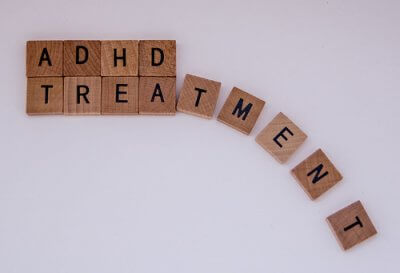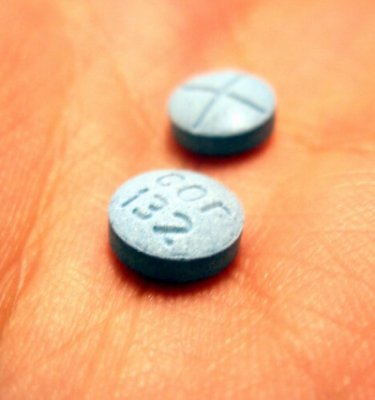ADHD Medications in the UK – What Are Your Options?

By: Practical Cures
Have adult ADHD? And wondering what your treatment options are when it comes to ADHD medications in the UK?
[Not sure you would qualify for a diagnosis? Try our free online ADHD test].
ADHD medications in the UK
Medication has come a long way since ‘ADD’ became a recognised diagnosis back in the 1980s. There are now far more options to choose from — if you live in the right country.
Europe, for example, prescribes less medications than the leader of ADHD drugs, America. The UK falls in between Europe and the USA, with a decent choice on offer, if not everything on the market.
If you would like to try ADHD medication in the UK, then you must go see a psychiatrist. They are the only mental health professional who can give you an official diagnosis (should you need paperwork for insurance or otherwise) and then prescribe medication.
[Watch Dr. Stephen Humphries, ADHD specialist psychiatrist in London, discuss ADHD meds in the UK here].
Licensed vs unlicensed ADHD meds
A ‘licensed medication’ means that it has gone through research trials that were approved by a regulatory body here in the UK.
An ‘unlicensed medication’ can refer to a medication that has not been fully tested. More often than not, though, it means a medication that is an import. Or, that a medication has been found to work for various issues beyond its original intention. So the maker has decided it’s too expensive to license it for everything and has made it ‘off license’.
When it comes to ADHD meds, an ‘unlicensed medication’ usually just means that the medication is licensed in other countries but not here in the UK, so is imported. It will generally be a more expensive option, and is more likely to be something you have to get through a private psychiatrist over the NHS.
[Learn more in the NHS “Guide to Unlicensed and Off-Label Medications“].
Stimulants in the UK
photo by Karolina Grabowska
ADHD medications are divided into those that are classed as stimulants, and those that are classed as non-stimulants.
Stimulants have been around the longest when it comes to ADHD meds. Unless your health or previous experiences with medication indicate otherwise, a stimulant is generally offered to you first. They work by increasing activity in the parts of the brain that help control your attention and help you take action.
Stimulants have the benefit of working right away. And they can be short or long acting, also called ‘immediate release’ and ‘modified release’. If you are nervous about trying ADHD medications you might want to ask for a short-acting medication which can give you an idea of what it’s like to be on meds.
The two types of stimulants for ADHD are the methylphenidate family (such as the infamous Ritalin), and the amphetamine salts family (like Adderall).
Methylphenidates
These are the most prescribed medications across Europe and the UK. The full scientific name is ‘methylphenidate hydrochloride‘. When short acting they last around two to three hours.
Ritalin, the most famous methylphenidate of all, is available in the UK, but only licensed for children over six and not for adults.
Licensed choices available are:
- generic methylphenidate
- Concerta XL
- Delmosart prolonged release
- Eqasym XL
- Medikinet XL
- Xaggitin XL.
Note that doses of a methylphenidate medication of over 60 mg daily are not licensed, and with Concerta XL the limit is 54mg.
Side effects of methylphenidate ADHD medications
These include an increased heart rate and blood pressure. Sleep problems, stomach upset, headaches, appetite loss, teeth grinding or jaw clenching. Possibly the return of physical tics you had in the past, and shifts in your moods including agitation. Very rarely they can cause psychosis.
Amphetamine salts
Amphetamine salts contain either dexamfetamine (sometimes spelled ‘dexamphetamine’), or ‘lisdexamfetamine‘ (full scientific name ‘lisdexamfetamine mesilate‘), which is a mixed salt.
Lisdexamfetamine is licensed in the UK. If you are prescribed but do not do well with either this or methylphenidates, then you will still be offered generic dexamfetimine.

By: Anders Sandberg
Off license options available are:
- Adderall (only available as extended release, the instant release version popular in America is not available).
Note that lisdexamfetamine is not prescribed if you have a dual diagnosis of bipolar disorder or substance abuse issues.
Also note that many European countries do not prescribe amphetamine salts. They are considered illegal drugs! So if you travel, be very certain you take a doctor’s letter with you!
Side effects of amphetamines
Side effects wise, note that amphetamines can cause drowsiness and dizziness instead of the buzz of methylphenidates. And you might also deal with nausea and diarrhoea.
Non stimulants
There is one non stimulant commonly prescribed amongst ADHD medications in the United Kingdom and Europe, which is Atomoxetine.
Atomoxetine
This is a selective re-uptake inhibitor (SNRI), so a very different sort of medication. It increases noradrenaline in the brain, a sort of messenger chemical passing information. The end result is better concentration as your impulses are lowered. Note that unlike other ADHD meds that are fast-acting, it also takes several weeks to have effect, much like an anti-depressant would.
Side effects of antomoxetine
Side effects can include stomach cramps and diarrhoea. It has a possible dangerous side effect which is suicidal thinking or a desire to self-harm. And it can be hard on your liver. For these reasons, it’s usually only prescribed after you’ve tried stimulants and they didn’t work for you.
Other unlicensed options
Briefly, it is possible for a UK psychiatrist to treat adult ADHD with:
- Modafinil
- the antidepressant Venlafaxine
- bupropion hydrochloride
- tricyclic antidepressants.
But there are all considered unlicensed ADHD medications. They don’t come recommended by the NHS or the UK’s diagnostic advice body, the National Institute for Health and Care Excellence (NICE)
ADHD medications on the NHS
Of the above medication choices, an NHS practitioner will offer you:
- methylphenidate
- dexamfetamine
- lisdexamfetamine
- antomoxetine.
And they would follow the NICE guidelines.
What does NICE recommend?
In America, mental health professionals all refer to the DSM when diagnosing (the Diagnostic and Statistical Manual of Mental Disorders). Other countries refer to the ICD, the guide put out by the World Health Organisation (WHO).
Here in the UK diagnostic guides are put out by the National Institute for Health and Care Excellence (NICE). They take into account both the DSM and ICD and all current and up-to-date research and evidence to make their recommendations for UK practitioners.
The current NICE advice for treatment of adults diagnosed with ADHD is as follows:
- Adults should first be offered lisdexamfetamine or methylphenidate.
- If after six weeks of methylphenidate the benefits aren’t showing then switch to lisdexamfetamine , and vice versa.
- If an individual has tried lisdexamfetamine and it’s helping symptoms, but a client finds the long duration of the effects hard to tolerate, then offer dexamfetamine.
- Offer atomoxetine only if the client can’t tolerate lisdexamfetamine or methylphenidate, or neither has proved much result.
Things to consider when deciding on ADHD medication in the UK
- Do I already know I focus and perform better when stimulated, like when I drink a lot of coffee? Or when I am more relaxed, like when I am a bit tired or have meditated?
- Do I want to take it every day, or just on work days? (Some of these medications are dangerous to just stop and have to be tapered).
- Do I want to be medicated just part of the day, or for most of the day?
- Are there any pre-existing or prior medical conditions I need to consider and discuss?
- Is my medication of choice something I can get through the system, or do I need to book a private psychiatrist?
And most important of all when it comes to ADHD treatment
It’s important to note that taking medication is a personal choice. You do not not have to take meds, and no psychiatrist should ever pressure you to do so. Yes, medications are the first line of treatment here in the UK for adults (note this is not the case for children) but they are not the only way forward.
Talk therapy is generally recommended for adult ADHD as well. This is because ADHD medications only manages symptoms and doesn’t change longstanding negative coping mechanisms. And some people decide to just go the therapy route and decide on medication later, or decide to never take meds.
Need a diagnosis or treatment for adult ADHD? Harley Therapy connects you with some of the UK’s best psychiatrists for ADHD, each with a minimum of 20 years’ experience. Alternatively book with one of our coaches or counselling psychologists who specialise in helping clients with attention deficit disorder.
Still have a question about adult ADHD medications in the UK? Post below. Or share your experience of trying meds with other readers.
 Andrea M. Darcy is a leading health writer who was diagnosed with ADHD decades ago.
Andrea M. Darcy is a leading health writer who was diagnosed with ADHD decades ago.






What happens if you’ve tried every medication listed and nothing works? I’ve already burned through everything listed here without anything helping. Are there additional types of medications or perhaps a non-medication treatment other than talk therapy (which hasn’t helped either)? Both my last psychiatrist and therapist were running out of ideas…
Ideas for what? As in, what is the exact result you are hoping to see? Who are you comparing yourself to here? What exactly is it you are expecting? All good questions to ask here. As we doubt a good ADHD therapist would be unable to help you achieve better coping skills. But we do not doubt for an instant that no therapist or drug in the world is going to make you some magic perfect efficient person. We do hope your therapist pointed out that there is no ‘normal’. Many people, even without ADHD, suffer from dissociation, distraction, and procrastination, and those who are born with machine like efficiency often suffer from things like relating issues or lack of creativity. We are all human with issues. There is no perfect person. And before you say that we don’t understand, this is written by someone who was diagnosed with ADHD 25 years ago, long before it was a going trend, and who is a full on, all symptoms included ADHDer, hyperactivity and all (hyperactivity wanes in most adults but unfortunately not in this case). ADHD is lifelong. It doesn’t magically go away with the right drug/therapy combo, some symptoms might improve. That’s all.And note that all your previous negative coping mechanisms will still be firmly in place. The rest is about management. Managing ADHD becomes about looking at what you can do, and maximising that, over endlessly seeking to be what you are not. Create a life that works with your ADHD instead of against it, such as by seeking a career that means you set your own hours, for example. Recognise what your skills are, what gifts ADHD brings, like hyper focus and creativity, and maximise how they serve your life. Find your tribe, people who accept you as is, instead of trying to change yourself to win the approval of those who don’t. Invest great energy into learning self compassion, where you learn to accept and believe in yourself over endlessly judge yourself. Don’t kid yourself that you can let the self care drop, either, keep up an exercise routine, good sleep, and a low sugar and junk food diet. So what if your friends can live on junk food, you are not them. Learn mindfulness meditation and make it as important to your day as things like taking a shower, as it is a game changer if you are consistent with it. And accept you need structure, even if it’s boring. Structure is the container that holds an ADHDer in place and channels their energy better. And then also note that trauma presents the exact same issues as ADHD, and if you have any life trauma, at all, that can be augmenting your symptoms (in fact many cases of ADHD diagnosed over the years in children from difficult upbringings are now being questioned as probably more complex trauma than ADHD in the first place). So don’t just pretend you are okay, if there is any past issues, deal with those fully, process them, do therapy over them not just endlessly focussing on your ADHD. And then learn about accountability and be accountable, to yourself, and to others, and find those who can lovingly hold you accountable. If your therapist isn’t an ADHD expert, find one who is, an ADHD psychotherapist or coach who actually knows what it’s like, who perhaps integrates CBT. And finally, stop feeling different. Unconsciously holding onto an idea that one is special or different can actually hold ADHDers back as deep down it gives them a sense of value they might be loathe to move on from. Spend each day noticing ways you are alike every person you cross, no matter how small that similarity is, even if it’s just that you are both wearing running shoes. This trains your brain away from obsessing of difference. So there you go. Work from who you are and what you are capable of instead of endlessly seeing yourself as flawed. Oh, and weird tip. A timer. Not the one on your phone, too distracting. Constantly set a timer to go off in a half hour or hour, whatever the time container is you think you need to get something done. It’s odd how many ADHDers do better when competing with a clock, it also keeps you from floating off. Or even just have your alarm go off every hour, and check in with yourself. Sorry if this isn’t the answer you wanted. But ADHD is life long. There isn’t a ‘cure’. But maybe being like everyone else is overrated. Best, HT.
My adhd is controlled with Adderall .
If you are born with a net transporter deficiency you need it medically, and therapy is simply patronizing .
The only other way to stimulate the secretion is through trans cranial stimulation.
Perhaps if Adderall were legal in your country you would note the difference .
Do you supply one capsule testers before we buy, I’m not saying you’re dishonest but it’s hard to buy these in the 🇬🇧
I was diagnosed in the US but moved to the UK at which point my Bupropion was taken away.
Since then I’ve been prescribed multiple unrelated antidepressants (effexor, SSRIs etc.) with little to no effect.
At the time I arrived there was no such thing as adult Adult ADHD unless you have been diagnosed as a child.(although there was NHS support for Homeopathy, so you might understand my skepticism on their decisions) Now I have an official diagnosis and have tried one stimulant (Concerta) (that was a crazy ride) and now Guanfacine. Guanfacine was starting to have _some_ (not great) positive effects, but dropped my blood pressure too low for running and climbing (I’m normally at a resting heart rate averaging at 50, but my normal low is about 43, Guanfacine dropped me to 38). Now we’re waiting for lisdexamfetamine to come back on the market. Soon I’ll run out of the 12 weeks limit titration period and have to start paying for contact.
Atomoxitine is not being considered and neither is Bupropion at the dosage that has been suggested (400mg, since I’d been taking it for more than 20 years it was suspected that it was time to increase the dosage from 300mg))
My impression of the NHS tendency to avoid Bupropion was that it had a limited affect in most people, and maybe as importantly, it had severe risked for drinkers. I can see why in the UK alcohol abuse might be a serious consideration,, since normal use here is considered abuse elsewhere.
That was a really long winded complaint, right?
What to do?
R 🙂
I am an American living in UK with British wife. I was diagnosed with ADHD first in childhood and again diagnosed when Adderall came out. My medicine was then switched from Dexadrine to Adderall.
I had to then switch from Adderall XR (after moving to UK), and your Psychiatrist in England prescribes Elvanse. After trying it and realizing that it just doesn’t work well for you and interferes with your sleep and appetite and then asking your physician to give you the dexamfetamine that you were prescribed in the USA prior to Adderall XR says although legal in UK, he will not write for that? Just change Psychiatrists. Any advice?
There is surely an ethical pandemic in our midst regarding all health including mental health problems caused by poor behavioural choices, poor lifestyle choices, there seems to be a problem with basic emotional intelligence and medicalizing/psychologizing lifestyle/behavioural problems of which all stakeholders must rectify.
50% of UK the population, including primary school children are now diagnosed with ADHD/Autism Spectrum/Dyslexia Spectrum/Depression and other Mood/Anxiety Disorders…. and are pushed into medication of anti-depressants/stimulents rather than improving their lifestyle, and behaviour. There is an ethical problem, what I see is behavioural problems that are self-inflicted, that does not need counselling, or medication, but healthy habits, healthy lifestyle, emotional intelligence, action, not inaction and excuses.